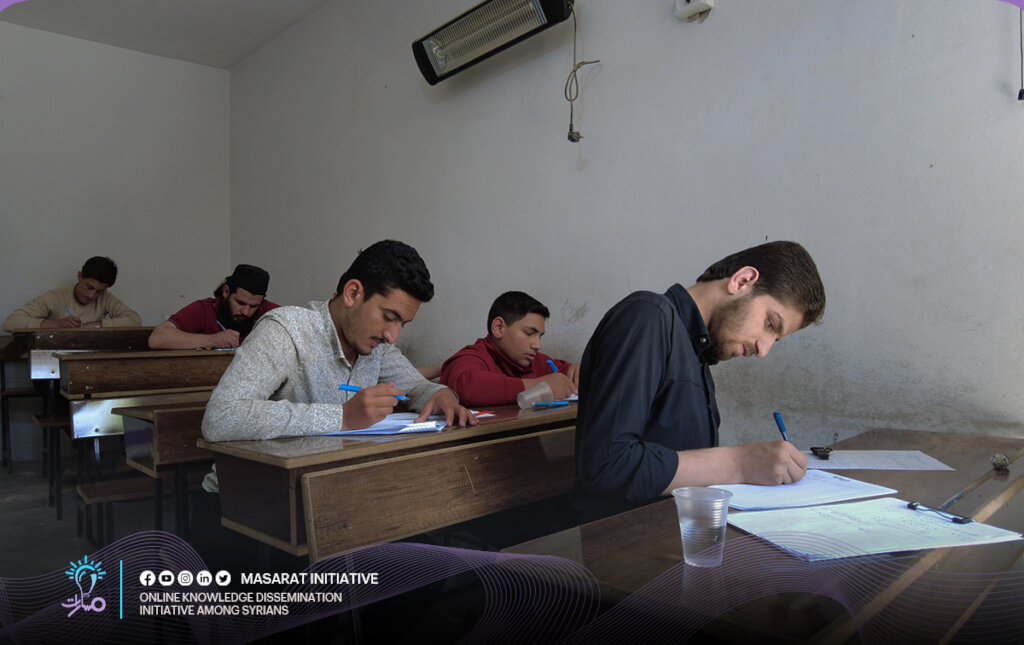In this article, we discuss the concept of an emotional personality and its characteristics, and we explore how strong emotions affect students’ behavior and interactions in daily life.
We also address how to manage emotions and use them to achieve psychological balance, as well as strategies for dealing with challenges that this personality may cause in students.
Emotional Personality
An emotional personality is a type of character that exhibits strong and quick reactions to events and situations it encounters. This personality is characterized by reflecting the emotional life felt by its owner, which can positively or negatively affect their personal and professional relationships if these emotions are displayed intensely.
People with this personality are highly sensitive to emotional expression, making them significantly affected by and responsive to their environment in unique ways.
Causes of Anger and Quick Emotional Reactions in Students
Emotions and Motivations
Emotion is a change in a person’s performance stemming from psychological origins, accompanied by internal changes that make the person feel the emotion, as well as external changes indicating the person’s emotional state. This psychological process involves the person’s response to the motivations that triggered the emotion.
Students at this age are likely experiencing many changes on personal and social levels, as well as significant academic changes. They need to cope with all these challenges, which affect their emotions and quick temper.
The primary causes of anger and emotional outbursts in students include:
- Academic Pressure: Academic curricula are a significant part of the motivations that lead students to emotional outbursts. The challenges faced by students in overcoming these pressures also cause quick and angry reactions.
- Societal Reality: Family and social problems affect a student’s mental state and their response to their circumstances. For example, students in northern Syria living in refugee camps are affected by their reality, influencing their emotional reactions to academic situations.
- Psychological Disorders: Some students suffer from anxiety and depression, leading to quick and angry reactions to events and issues.
- Lack of Sleep: An unhealthy lifestyle affects students and their academic performance, increasing the likelihood of quick emotional reactions.
Emotions and Feelings
Emotions are the feelings and sensations that lead to the formation of emotions, originating from a person’s internal makeup and the thoughts they hold about their emotions.
Some emotions are acquired from the society in which a person lives. Situations are the primary drivers of these human emotions, formed from life experiences. Emotions provide movement, initiative, and activity to human life. Without these emotions, we would not strive towards ambitions, goals, study, work, and continuity, and we would not recognize our self-worth, which is closely tied to our emotions.
Types of Emotions Experienced by Students
There are many emotions students experience due to academic stress. The most significant emotions related to students’ emotional aspects include:
- Anxiety: A natural feeling for students, but it can turn into an emotion towards academic achievement, potentially harming students if they don’t know how to manage it.
- Sadness: Felt by students when they fail an exam, leading to frustration.
- Fear: Fear of not achieving success, which has a strong impact on emotions.
- Stress: From daily life and academic pressures, causing tension and quick anger.
- Lack of Self-Confidence: Doubting personal abilities can hinder academic achievement.
Successful Strategies for Managing Quick Emotions and Anger Among Students
Managing quick emotions and anger among students requires applying strategies aimed at improving mental health and ensuring positive behavior. Here are some successful strategies:
Relaxation and Calm Techniques
Teach students deep breathing techniques to calm the nervous system and reduce stress.
Time Management and Activity Organization
Train students to create schedules to organize their time appropriately and avoid burnout, and also organize short breaks to maintain focus and reduce stress.
Family Support
Encourage open communication between students and their families for emotional support and avoid distractions before exams.
Emotion Regulation and Emotional Maturity
Emotional maturity involves managing immature emotional expressions that cause impulsiveness, exaggeration, and lack of self-control, shifting to balanced, non-harmful expression. Rationally dealing with situations by interpreting them objectively and calmly without rushing.
However, the skill of controlling emotions is challenging for many, especially students during the school year or exams. It can be managed through self-training on some solutions, including:
- Understanding the Personality and Its Sensitivity to Emotions: This knowledge is the first step in managing emotions and controlling reactions.
- Identifying Emotional States: Recognizing what you feel and dealing with it calmly, knowing your internal emotions can help control quick reactions.
- Breathing Techniques: Helps manage emotional states accompanying you, assisting in avoiding quick and negative reactions.
Self-Control and Emotion Regulation
Self-control and emotion regulation are crucial. Several strategies can help improve these skills:
- Identify situations that trigger your emotions. Knowing the triggers helps in avoiding or preparing to handle them better.
- Practice deep breathing techniques to calm the nervous system and reduce the angry emotional response to stimuli.
- Give yourself time before responding to a potentially provocative situation, preventing impulsive behavior.
- Try to understand others’ perspectives; empathy helps reduce anger and improve communication.
- Talk about your feelings with someone you trust to provide emotional support and help you see things from a different angle.
Practical Exercises for Emotional Discharge
Emotional discharge is essential for maintaining mental and emotional health. Here are some practical exercises that can help:
- Daily Writing: Spend 10-15 minutes daily writing your thoughts and feelings without restrictions. This helps understand and organize emotions.
- Deep Breathing Exercises: Sit in a quiet place, take a deep breath through your nose, hold it for several seconds, then release it slowly through your mouth. Repeat this for 5 minutes to calm the nervous system and reduce stress.
- Physical Activity: Engage in exercises like walking, running, or strength training for 30 minutes daily, releasing endorphins that improve mood and reduce stress.
- Artistic Expression: Use drawing, coloring, or any form of art to express your feelings visually, providing a way to release emotions and calm the mind.
Emotional Intelligence and Its Relationship with Academic Achievement
Emotional intelligence involves intelligently handling human emotions and feelings, managing them to benefit the student. It is crucial as it affects the student’s relationship with their environment and their ability to deal with their emotions regarding others healthily and disciplinedly.
Important elements of emotional intelligence include
- Self-Assessment and Continuous Improvement: Understanding and improving one’s flaws and leveraging strengths.
- Self-Regulation and Emotional Control: Developing the ability to manage emotions and think rationally.
- Communication Skills: Building strong social relationships with peers and teachers through body language and hand gestures.








